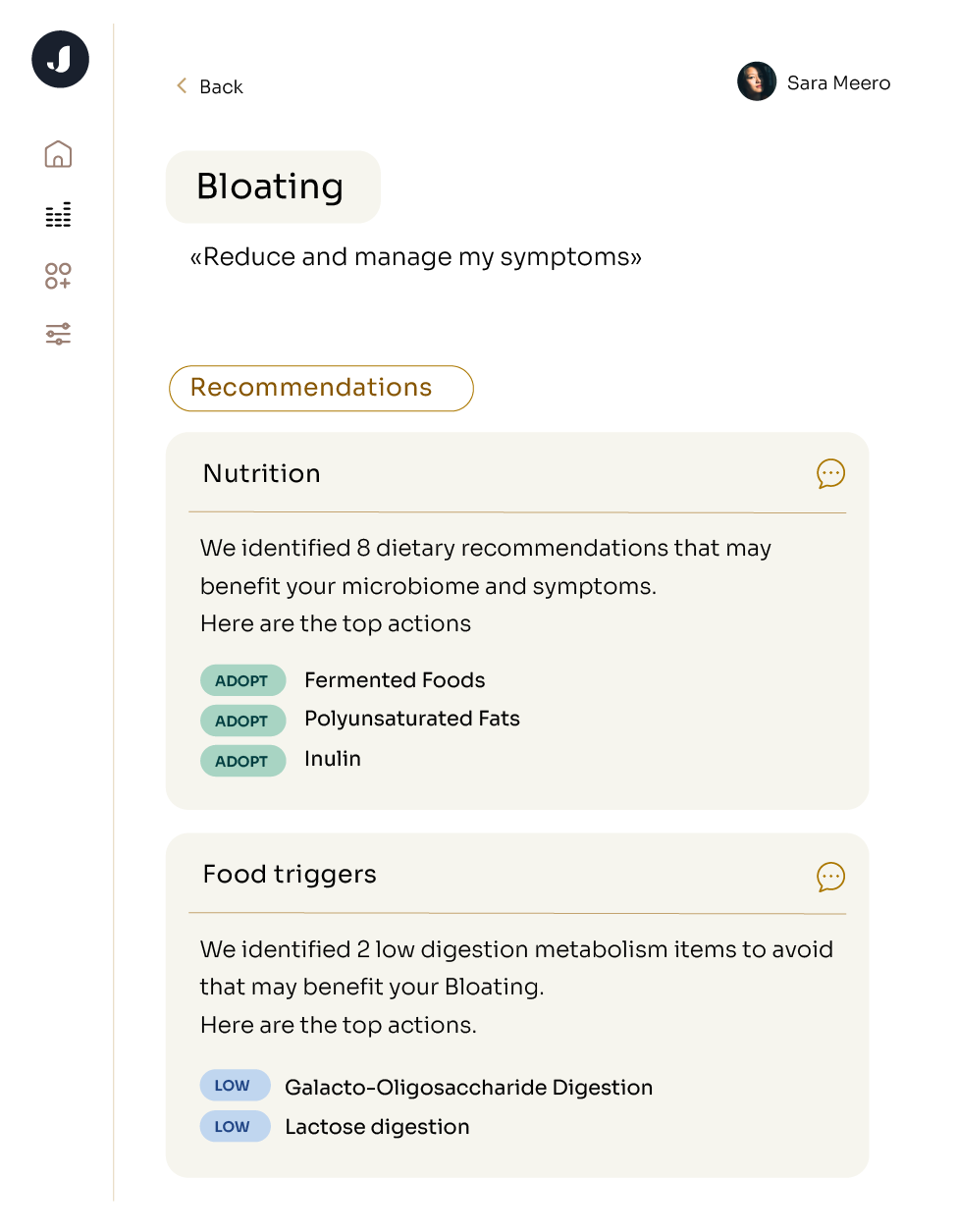The medical research database PubMed registers more than 2,000 new studies per month related to the microbiome. No human can keep up with this number of new insights, and the microbiome field is particularly active. For comparison, PubMed registered only 142 studies per month in 2023 on polycystic ovary syndrome, and only about 92 studies per month on irritable bowel syndrome in the same period.On one hand, all of this new research provides a wealth of data and insights on the microbiome; on the other, it creates an overwhelming amount of information that is difficult for anyone to sift through manually.
AI algorithms excel at handling large datasets. By employing natural language processing (NLP) and machine learning techniques, Jona’s AI can scan and analyze vast amounts of microbiome literature in a fraction of the time it would take a person to read these papers, much less link them together.
In any data-driven field, distinguishing meaningful signals from background noise is crucial. The gut microbiome is no exception, where variations in microbial populations can be influenced by numerous factors, including diet, lifestyle, and genetics. Ensuring high data quality and accurately interpreting these variations is essential for providing reliable insights.
Jona partners with an expert lab to conduct metagenomic shotgun sequencing, a data method that looks at the entire scope of what’s in your gut - viruses, bacteria, fungi, protists, and more. Unlike 16S tests which can analyze only surface level bacteria (ignoring fungus and other aspects of your microbiome), metagenomic shotgun sequencing identifies strain-level organisms across bacteria, fungus, viruses, protists, pathogens, parasites and more on which we can utilize our AI engine.
In leveraging scientific studies to analyze microbiome data, Jona’s AI weighs each study based on the strength and consistency of the evidence to focus on the most significant findings.This enhances the accuracy and reliability of our microbiome analysis, ensuring that each analysis is performed using trustworthy, evidence-based and actionable information.
Static reports can quickly become outdated, limiting their usefulness. If you took a Jona test last week, and there is a breakthrough in the research this week, we still want you to benefit from that new information.
AI enables our reports to evolve with science. By continuously integrating new research findings, our AI-powered analysis can update its models and insights in real-time. You may log into your report weeks or months from now and see that your associations have changed. Even though we’re working from the original stool sample, its implications for health and disease may have changed. For the most up-to-date results, you’ll want to retest every three to six months so we can sync our research updates with any changes in your body.
Our system creates a “digital twin” for each individual user, used to simulate the impact that various foods, diets, lifestyle changes, and nutrients have on your gut microbiome. This can help inform which diet, supplements, and recommendations can improve your gut.
Using insights generated from your microbiome analysis, our AI can generate a personalized action plan to meet your specific gut needs. For instance, if you have low levels of a particular microbe that should be abundant in your body for optimal health, Jona can provide recommendations on specific diet or lifestyle changes to help increase the concentration of that microbe to a healthy level.





